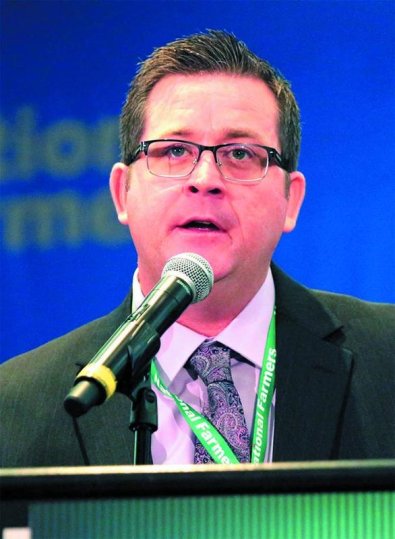
At the same time, the U.S. government is pouring billions of dollars into programs that claim to support agriculture.
What’s going on?
I asked farmers that very question. What they told me over and over is that government subsidies are not the way to fix the long-term challenges facing family dairy farmers. To put it simply, agricultural payments are nothing more than Band-Aids, too little and too late, to stabilize farm numbers.
One of the farmers I talked with said, “Subsidies won’t save your dairy farm; they just allow you to kick the can down the road in hopes that you can survive another year.” He said replacing farm equipment with the prices he has been getting for milk is next to impossible. Farmers like him are forced to keep the old stuff running because they cannot afford to modernize. He said no government subsidy is going to save his farm.
It hasn’t always been this way. The farmer I was talking with compared his situation to that of his father in 1980. His father, on the very same farm and milking fewer cows, bought a new tractor and new pickup truck that year. Now, a generation later, the son is expecting to leave farming once the last of his money runs out.
I asked another dairy farmer if the government payments he was getting would make enough difference to keep him in business. He said the extra program money slowed the bleeding, but would not save his farm.
His farm equipment is 20 years old and there is not enough money for upgrades. His bank account is nearly empty and any money that comes available goes for immediate bills and feeding his family.
Most of the family dairy farmers I talked with said their frustration is growing by the day. Throwing money at a problem is not the same as making substantive changes that restore prosperity to smaller dairies.
They sit by helplessly and watch giant, investor-owned dairy operations that milk thousands of cows grow in number and market share. Meanwhile, they see programs coming from Washington that are heavy on lip service and light on meaningful change.
Agricultural subsidies, no matter how well-intentioned, are not a long-term answer. Instead, they allow Washington to kick the can down the road. Our family dairy farms and the rural communities they support slip farther away as this happens.
Government officials foolishly continue to throw money at a broken agricultural system. Desperate farmers, lacking any meaningful alternatives, sign up for programs that can never solve their problems.
Family farmers want to continue to support things that benefit everyone: Strong rural economies, food security and a healthy environment.
They can’t do this alone, however. They need meaningful help and they need it soon.
We must recognize that our current programs are not up to the job of saving the family dairy farm. Some of those programs pay much more to very large farms than they do to family-sized farms.
Money targeted toward smaller farms, in the words of a recent Department of Agriculture report, “remains a fraction of the average cost differences between small and large operations.”
Government and business leaders need to sit down with America’s family dairy farmers and have an honest conversation. The leaders must understand the problems farmers face and the benefits independent, family farms provide to all of us.
Then, and only then, can we move past too little, too late approaches and into a dairy economy filled with opportunity and prosperity for America’s family dairy farmers.
Michael Mackey is dairy field operations director of the National Farmers Organization.























